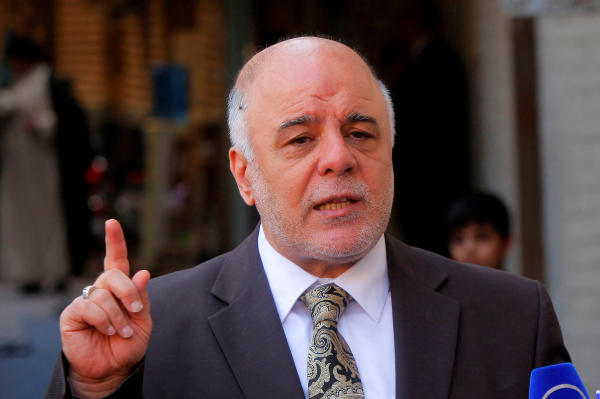Mosul is the promised land where the great battle is expected to take place. It is also the second largest city in Iraq. For nearly two years, the world has been waiting for the crucial fight between Iraqi forces and the international coalition on one side, and ISIS fighters on the other.
The battle is not simply between the good and the bad, even though the terrorist organisation ISIS is the villainous team and the agreed upon enemy. Nevertheless, before the battle begins, serious differences about managing the war arose between the parties on the ground. These differences were with regards to the role of each participating army, how the war will end, the fate of the city after it has been cleared and what will happen to the hundreds of thousands of people that are expected to be displaced during and after the battle.
Iraqi, American, Iranian, Turkish and other generals are crowded together in the area around Mosul. They all consider it to be the decisive battle to defeat the terrorist organisation ISIS that embarrassed world powers with its rapid spread, its control over one-third of the territory of two large countries; Iraq and Syria, and its unprecedented mass murder of all ethnicities, including Sunni Arabs and Kurds who resisted it.
All of them want the honour of defeating ISIS so that they can use this for propaganda purposes in their respective counties. Morale is high and everyone is confident that they will finally liberate Mosul, although we have not heard their estimates of the length of the war and the human cost, especially among civilians employed by the terrorist organisation to work as human shields for it. Civilians that are saved from ISIS may fall into the grip of Al-Hashd Al-Shaabi militias, some of which are in fact sectarian terrorist organisations.
In addition to this, Iraqi – Turkish differences have suddenly come to the surface. There is a Turkish military force on the outskirts of the besieged city, and the Iraqi government asked the Turkish government to withdraw its force which is estimated to be formed of less than 2,000 soldiers. Their presence on Iraqi territory is considered illegal as they do not have the permission of the sovereign state to be there.
In an interview that was broadcasted on Rotana TV channel, the Turkish President Recep Tayyip Erdogan responded to this request clearly when he told Jamal Khashoggi that he would not allow the deportation of Sunni Iraqi Arabs and Iraqi Turkmen. This was a clear accusation directed at the Iraqi government, and Erdogan indicated that he did not trust the Iraqi government’s management of the battle and its dealings with Sunni Arabs and Turkmen. Turkish intervention in Mosul has raised questions about Ankara’s failure to intervene in order to protect the people of the besieged Syrian city of Aleppo considering its current enthusiasm to intervene elsewhere in the region.
The Iraqi government has failed to protect its Sunni citizens on numerous occasions that include all previous battles in Al-Anbar province, the latest being in Fallujah and Ramadi.
Nineveh, and its capital Mosul are some of Iraq’s most ethnically mixed provinces; its people include Kurds, Turkmen, and Arabs. They are also the most diverse in terms of factions, and the population is made up of Sunnis, Shi’is and Yazidis. We have not heard the Iraqi government guaranteeing the safety of the population. It has only made verbal assurances that are no longer trusted by anyone.
How can Haider Al-Abadi’s government deal with this complex, embarrassing and dangerous reality? In my opinion, the prime minister can fly to Ankara and negotiate with the Turkish government. He should accept the entry of Turkish troops as part of the forces involved in the battle. In this way, he will avoid confrontation that may ensue after the liberation of Mosul, when every force will try to take control.
If a Turkish-Iraqi agreement is reached prior to the battle to destroy ISIS, it will reassure Iraqi Turkmen and the Sunni Arabs. In addition to this, it will create a sense of security, for the first time in Iraq since the overthrow of Saddam Hussein’s regime, for marginalised and oppressed groups that led the rebellion against the centre, Baghdad. Legitimising the presence of the Turkish force in Iraq will help the Abadi government to manage the state and not just the province of Nineveh. It will also save the government from embarrassment.
